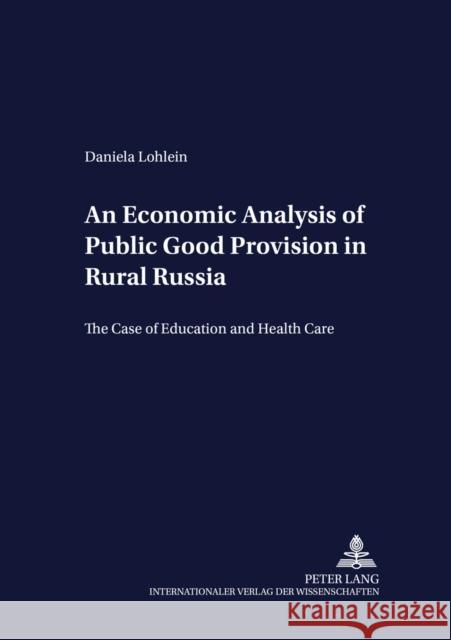An Economic Analysis of Public Good Provision in Rural Russia: The Case of Education and Health Care » książka
An Economic Analysis of Public Good Provision in Rural Russia: The Case of Education and Health Care
ISBN-13: 9783631507742 / Angielski / Miękka / 2003 / 165 str.
An Economic Analysis of Public Good Provision in Rural Russia: The Case of Education and Health Care
ISBN-13: 9783631507742 / Angielski / Miękka / 2003 / 165 str.
(netto: 270,92 VAT: 5%)
Najniższa cena z 30 dni: 282,27
ok. 10-14 dni roboczych
Bez gwarancji dostawy przed świętami
Darmowa dostawa!
Adequate access to public goods plays an important role in the economic and rural development of any country. For the transition countries, however, providing public goods is particularly problematic owing to several factors associated with the transition process itself, e.g. economic recession and a change in ownership of local public goods. Taking Russia as an example, this study examines the effect of the transition process on rural households access to public goods. With reference to education and health care, household access to public goods is addressed in terms of community availability and economic access. The analysis is taken a step further, through an examination of the role of informal institutions in public good provision. Multiple regression analysis was used to test for the significance of income as a determinant of private expenditures on public goods. The results indicate that, contrary to expectations, neither income nor informal payments are important determinants of access to public goods. Informal institutions continue to exert a strong influence on the provision of public goods."











